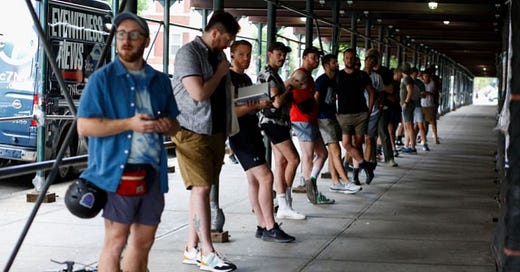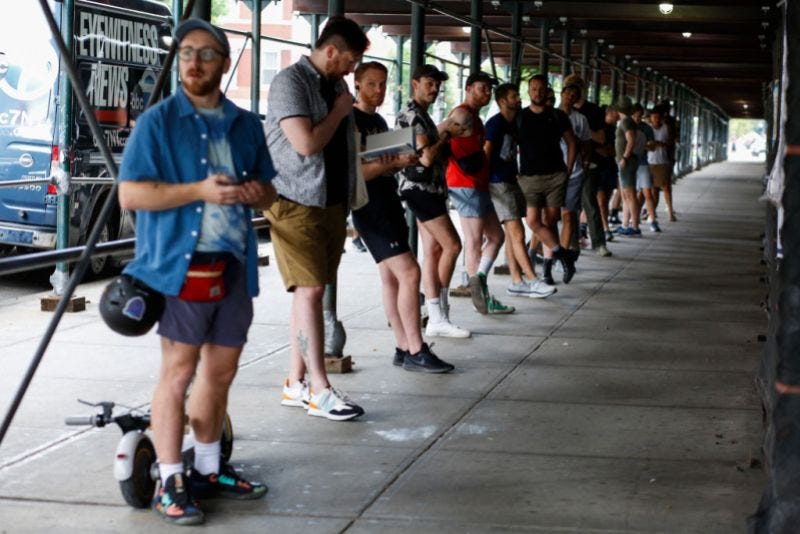MAINSTREAM NEWS
THE NEW DAILY
The World Health Organisation has declared the monkeypox outbreak a ‘global health emergency’ as cases surge around the world and not enough is known about how it is spreading.
The declaration — the highest alert that can be issued — came after its second emergency meeting and as confirmed cases since May reached 16,000 in 74 countries, with five deaths.
As of July 19, Australia had reported 41 confirmed or probable cases of monkeypox, with most in NSW (22) and Victoria (15).
WHO chief Dr Tedros Ghebreyesus took the decision into his own hands after the committee was unable to reach consensus and he warned there was risk of more international spread.
It was the first time the chief of the United Nations health agency has taken such an action.
Declaring a global emergency means the monkeypox outbreak is an “extraordinary event” that could spill into more countries and requires a coordinated global response.
“In short, we have an outbreak that has spread around the world rapidly through new modes of transmission about which we understand too little and which meets the criteria in the international health regulations,” Dr Tedros said.
The declaration is a rally cry for countries to take the disease seriously and could spur more resources and action on vaccines and treatments.
The existing smallpox vaccine currently provides good protection against monkeypox.
There are now three current global health emergencies — monkeypox, the coronavirus pandemic and ongoing efforts to eradicate polio.
Previous declarations include 2014 West African Ebola outbreak, the Zika virus in Latin America in 2016 and the ongoing effort to eradicate polio.
“I have decided that the global monkeypox outbreak represents a public health emergency of international concern,” said Dr Tedros.
“For the moment this is an outbreak that’s concentrated among men who have sex with men, especially those who have multiple partners.
“That means that this is an outbreak that can be stopped with the right strategies in the right right groups.”
SKY
White House on ‘COVID-watch’ as Biden’s symptoms ‘improve’
1 hours ago
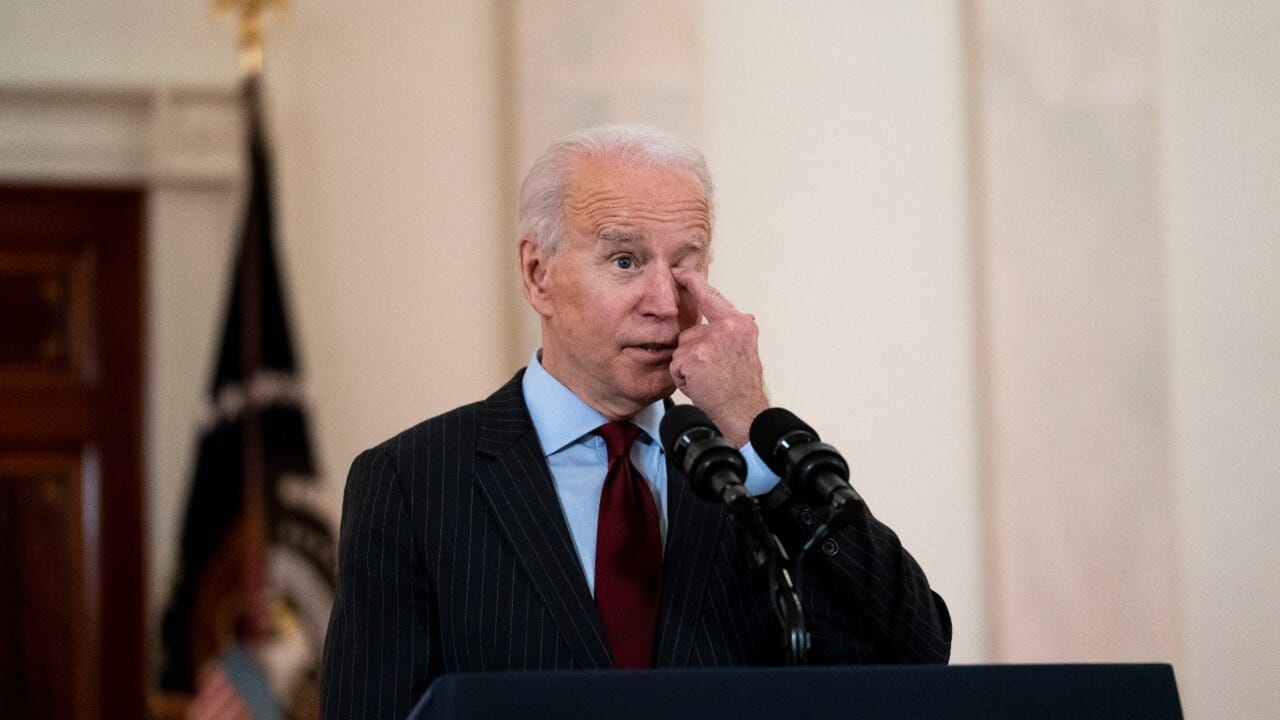
Sky News Washington Correspondent Annelise Nielsen says the White House is on “COVID-watch” as US President Joe Biden’s symptoms “improve” after testing positive for the virus a few days ago.
“Everyone is watching very closely for the 79-year-old’s health,” she said.
THE SPECTATOR
Part of the declaration includes the acceleration of vaccine research for Monkeypox.
‘Although I am declaring a public health emergency of international concern, for the moment this is an outbreak that is concentrated among men who have sex with men, especially those with multiple sexual partners. That means that this is an outbreak that can be stopped with the right strategies in the right groups,’ said Tedros.
It almost sounds like the pandemic in the West could be stopped if people gave shagging a rest for a couple of weeks and then tighter controls were placed on flights in and out of Africa.
The thread from the WHO started getting a little strange after that, with the hashtag #SolidarityNotStigma and a stern caution not to stigmatise people about catching Monkeypox. It’s nice advice that would have been useful when the unvaccinated were being demonised and wrongly blamed for the spread of Covid.
So far, the response appears to be a mix of annoyance, ambivalence, and a good dose of ‘bugger off’ as if people are growing tired of a new emergency popping up each week.
Perhaps it’s time to take bets on whether or not the WHO has the balls to propose a ‘sex ban’ on the LGBTQ+ community for the sake of public health? ‘No monkey business until we’re all safe!’
At least we won’t have to wear masks for this one.
GUARDIAN AUSTRALIA
Sitting in a park, riding a bike: Covid fines in NSW riddled with problems, legal centres say
Marginalised and disadvantaged groups bore the brunt of the state’s lockdown fines, according to community legal centres
Get our free news app, morning email briefing and daily news podcast
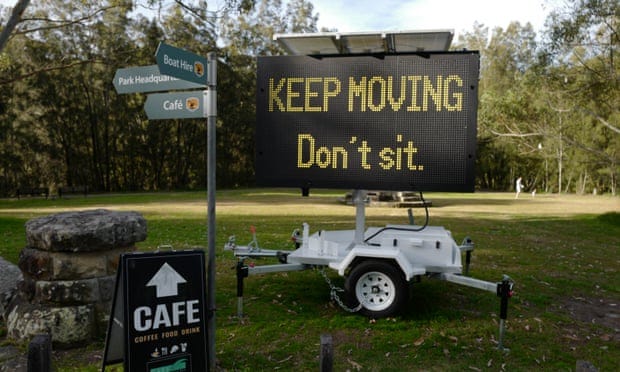

Sun 24 Jul 2022 06.00 AEST
When the police pulled up, lights blazing, Aaron* and his partner were cycling through Sydney, exercising to break up the monotony of last year’s Covid lockdown.
The pair had no reason to think they were doing anything wrong. They were clearly exercising and had taken care to stay within 5km of their home in inner Sydney.
A highway patrol car pulled the pair over. The officers deemed that they had crossed a local government area line into Bayside LGA. Aaron didn’t know such a boundary existed.
“We tried to tell him ‘we had no idea, we feel like we’re within 5km’, but he wasn’t having any of it and he fined us $1,000 each.
“No warning, no nothing,” Aaron told Guardian Australia.
“That’s when it struck me, I thought ‘wow, there’s such differences in the way police are enforcing this across different LGAs’, because in the city everyone was just everywhere. How are you going to enforce it in the city?”
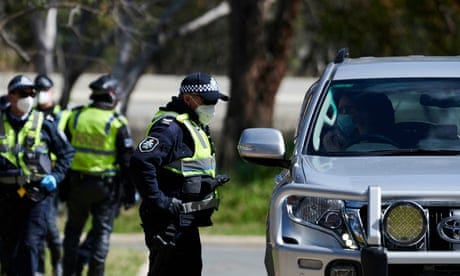
For Aaron’s partner, the consequences could have had a lasting impact.
“It’s a huge fine,” he said.
“But the main thing was that my partner was a law student, and when you’re a law student and you get fined or convicted of anything, when you go to the bar you have to disclose everything you’ve had, from a parking offence to a Covid fine.”
Determined to fight the fine, the pair engaged lawyers from Redfern Legal Centre and sought a review. Their first review was rejected.
Their second was made on the same grounds, but sent to a different part of government. The fines were withdrawn.
“Our argument didn’t change. We believed we were doing the right thing according to the law at the time, and the law was so fluid … how were you meant to keep on top of it?”
Their experience is not unique. Lawyers representing many of the tens of thousands of residents in NSW who were fined for breaches of public health orders say the state’s enforcement has been riddled with problems. In some cases fines have been issued erroneously and reviews have given wildly varied results.
ABC
When she worked for a supermarket, Ann witnessed huge bins of produce being thrown out at the end of each shift. She says the employees couldn't take the wasted items for a reduced price or free of charge.
"It made me really angry. It made me question the corporations' approach to waste and their environmental impact," she says.
"If stores wish to discard perfectly edible produce, we must be able to take it and use it."
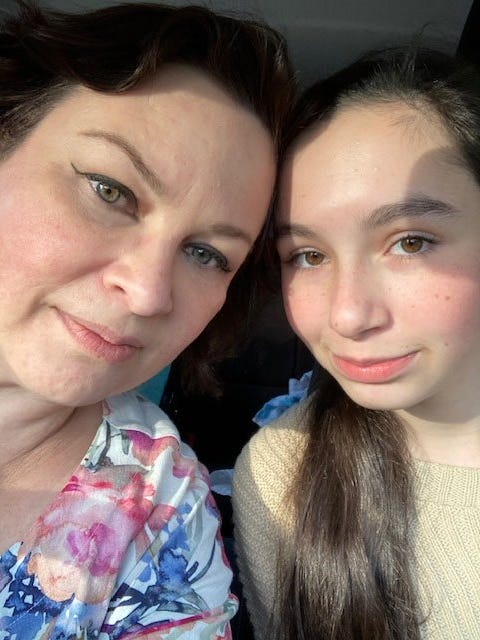
Now Ann is one of thousands of Australians struggling to put food on the table as prices rise — and those dumpsters behind shops are ripe for plundering.
"My daughter is embarrassed by being 'poor' because all her schoolmates live in large private houses, and their parents drive expensive cars," she says.
"We are not living on a poverty line, but we are living very simply, without luxuries or excesses that people with more money can afford. We live in a tiny government-subsidised unit, which is old and basic."
Ann, who lives in Sydney, considers herself a novice when it comes to dumpster diving — but says it can be a lifesaver when she's struggling financially.
"Knowing that retail giants, as well as smaller companies, discard ridiculous amounts of waste daily, made me think I could use it to … stay afloat.
"It's safe, it's environmentally friendly, it's not a desperate act … We are not vermin, we are people who make choices."

